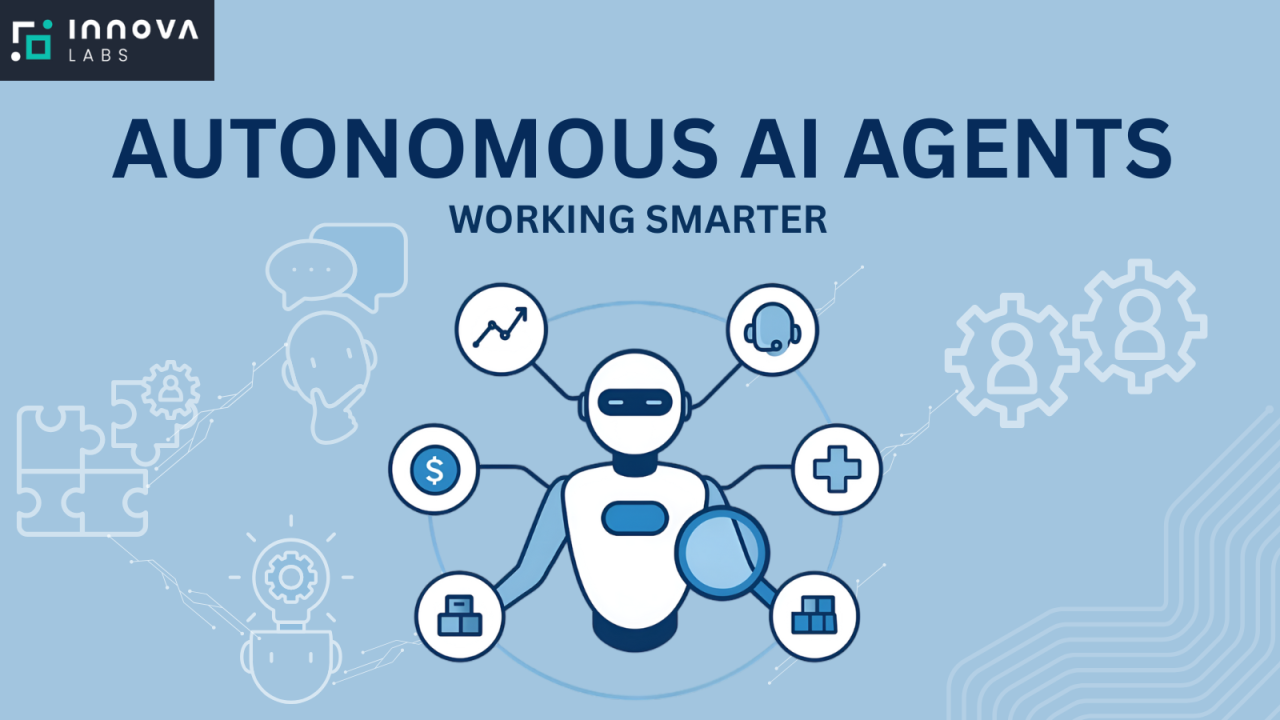AI Companions: The Rise of Digital Friends in a Hyperconnected World
Introduction
The concept of companionship has always been deeply human—built on emotions, empathy, and shared experiences. Yet, with the rapid rise of artificial intelligence, we’re entering a new era where companionship is no longer limited to humans or even pets. Instead, AI companions—digital entities powered by advanced machine learning, natural language processing (NLP), and emotional recognition—are becoming part of daily life.
From AI chatbots that provide emotional support to virtual partners designed for long-term interaction, these companions are increasingly sophisticated. They learn personalities, remember preferences, adapt to moods, and in some cases, even mimic affection. But with such power comes profound implications: ethical, social, and psychological.
This article explores the evolution, benefits, applications, risks, and future of AI companions in our rapidly digitalizing society.
What Are AI Companions?
AI companions are artificial intelligence-driven systems designed to engage with humans in a personalized, interactive, and often emotionally intelligent way. Unlike standard digital assistants (like Siri, Alexa, or Google Assistant), AI companions are not limited to functional tasks; their primary goal is relationship building.
They:
-
Engage in conversational depth (not just answering questions, but holding meaningful discussions).
-
Provide emotional resonance, offering comfort or empathy.
-
Exhibit adaptive learning, remembering past interactions.
-
Simulate personalities, making them feel more “human-like.”
These companions come in many forms—chat-based, voice-based, embodied in robotics, or even visualized through augmented and virtual reality (AR/VR).
The Evolution of AI Companions
1. Early Digital Friends
The idea of digital companionship is not new. In the late 1990s, toys like Tamagotchi and Furby offered the first taste of “caring” for a digital entity. Though primitive, they laid the foundation for human attachment to artificial beings.
2. Chatbots and Virtual Friends
In the early 2000s, simple bots like SmarterChild (on AOL Instant Messenger) and Cleverbot introduced conversational AI to millions. These systems lacked emotional intelligence but opened the door to the idea that machines could engage socially.
3. AI Companions Today
With advancements in large language models (LLMs), generative AI, and emotional AI, modern AI companions—like Replika, Pi by Inflection AI, Character.AI, and ChatGPT-based agents—are more engaging and realistic than ever. Some even integrate with VR/AR, creating immersive companionship experiences.
Why People Are Turning to AI Companions
The demand for AI companions is rising globally, driven by several factors:
1. Loneliness Epidemic
Studies show that loneliness is becoming a public health issue, especially in urbanized societies. AI companions fill emotional gaps by providing 24/7 availability without judgment.
2. Safe Emotional Outlets
People feel more comfortable sharing secrets, fears, or insecurities with non-judgmental AI entities compared to humans.
3. Personal Growth and Therapy
AI companions are being used in mental health support, providing mindfulness exercises, daily affirmations, or CBT (cognitive behavioral therapy)-based chats.
4. Entertainment and Engagement
Gamified AI companions offer fun, play, and light-hearted conversation. Some even integrate with storytelling, roleplay, or simulated adventures.
5. Relationship Training
Some users explore AI companions as a safe space to practice social skills, relationship communication, or even dating scenarios.
Applications of AI Companions
AI companions extend beyond emotional support and entertainment. Let’s look at their real-world applications:
1. Mental Health Support
AI chat companions like Woebot and Wysa use AI to provide mental health check-ins, guided therapy, and emotional care. While they are not replacements for licensed therapists, they are accessible tools for stress, anxiety, and depression management.
2. Elderly Care
For senior citizens living alone, AI companions can provide conversation, medication reminders, and even detect signs of cognitive decline. Robotic companions like Paro the Seal and AI-enabled smart speakers reduce isolation among the elderly.
3. Education
AI companions can serve as personalized tutors, helping students learn languages, practice problem-solving, or improve communication skills in a friendly and engaging way.
4. Workplace Support
AI companions are entering offices as productivity partners, helping workers brainstorm, manage schedules, or reduce burnout by offering motivational prompts.
5. Romantic AI Partners
A growing niche is AI romance, where companions are designed to mimic intimate relationships. While controversial, many users claim these digital partners provide comfort and stability.
The Technology Behind AI Companions
AI companions rely on a combination of cutting-edge technologies:
-
Large Language Models (LLMs): Provide natural, fluid conversations.
-
Sentiment Analysis: Detects user mood to adapt responses.
-
Personalization Algorithms: Tailor conversations to user history.
-
Voice Synthesis & Recognition: Creates lifelike audio interactions.
-
Embodied AI: Robots and avatars allow physical or visual presence.
-
Emotion AI (Affective Computing): Recognizes emotions through voice tone, facial expressions, or text input.
Ethical and Social Concerns
While AI companions provide benefits, they also raise important challenges:
1. Emotional Dependence
People may develop unhealthy attachments to AI companions, substituting real human connections with artificial ones.
2. Privacy and Data Security
Companions require storing sensitive conversations. Breaches could expose intimate personal data.
3. Manipulation Risks
If commercialized, AI companions could subtly influence user choices—encouraging spending, shaping opinions, or reinforcing harmful behaviors.
4. Redefinition of Relationships
If people rely heavily on AI companions, it could change how society views friendship, love, and intimacy.
5. Ethical Programming
Who decides how empathetic, supportive, or morally “correct” an AI companion should be? Cultural and ethical biases could heavily influence AI behaviors.
Case Studies
1. Replika AI
Replika is one of the most well-known AI companions, marketed as “the AI that cares.” Users form friendships, romantic relationships, or even familial roles with their Replika. It remembers past chats, adapts over time, and can roleplay.
2. Pi by Inflection AI
Designed as a conversational, empathetic AI, Pi acts as a supportive partner for self-reflection and life guidance.
3. Paro the Seal Robot
Used in Japanese elder care, Paro is a therapeutic robot that responds to touch and voice. Its purpose is to reduce loneliness among seniors.
4. Character.AI
Allows users to create and interact with AI companions modeled after real or fictional personas, expanding companionship into entertainment and roleplay.
The Future of AI Companions
The future of AI companions is vast and evolving rapidly:
-
Integration with AR/VR Metaverse: AI friends will exist in immersive digital worlds, where users can interact with lifelike avatars.
-
Robotics Integration: Physical AI robots could serve as household companions.
-
Hyper-Personalized AI: AI companions that understand users so deeply they feel indistinguishable from human partners.
-
Therapeutic AI: More regulated and clinically approved AI companions for mental health.
-
Ethical AI Companions: Built with strong privacy, safety, and transparency features.
Advantages and Disadvantages
✅ Advantages:
-
Provides emotional support.
-
Reduces loneliness.
-
Improves productivity and learning.
-
Affordable compared to therapy or caregiving.
-
Available 24/7.
❌ Disadvantages:
-
Risk of emotional over-dependence.
-
Data privacy concerns.
-
Ethical dilemmas in intimacy and manipulation.
-
Could reduce human-to-human interaction.
-
Still lacks true empathy or consciousness.
Conclusion
AI companions represent one of the most human-facing evolutions of artificial intelligence. Unlike traditional tools that focus on efficiency, these systems tap into our deepest need: connection.
While they cannot replace the complexity of human relationships, they provide valuable support in addressing loneliness, enhancing learning, and even reshaping caregiving. The key challenge ahead lies in responsible development—ensuring AI companions enrich lives without exploiting vulnerabilities.
In the future, as technology integrates with VR, robotics, and affective computing, AI companions will become more realistic and emotionally intelligent. The question then will not only be what AI companions can do, but how society chooses to embrace them.
For quick updates, follow our whatsapp –https://whatsapp.com/channel/0029VbAabEC11ulGy0ZwRi3j
https://bitsofall.com/https-yourblog-com-apple-chip-redesign/
OpenAI and NVIDIA partnership: building the compute backbone for the next era of AI







